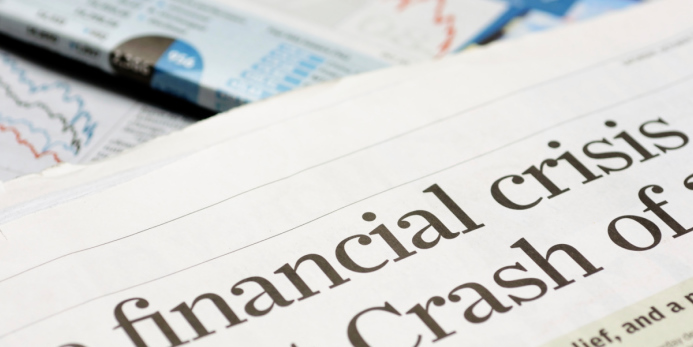
August 22, 2012, by ICCSR
No more business as usual?
CSR and CSI in the financial sector in times of crisis
The financial crisis has brought about severe consequences for our economy and society and we are still witnessing a fragile recovery and debates of lending rate manipulation, excessive executive remuneration, money laundering and secret transactions. Albeit in the context of regulatory failure and borrower shortsightedness, the financial sector has been held at least partly responsible for this crisis.
Attributions of responsibility for the crisis have drawn attention to the concepts of corporate social responsibility (CSR) which refers to business responses to the expectations of society, and corporate social irresponsibility (CSI) which refers to business failures to meet these expectations. The term ‘expectation’ underlines the point that business responsibility is partly a social construction, hence the frequently-cited business motive for CSR of ‘legitimacy’. As in all senses of legitimacy it is not for the business to stipulate what constitutes legitimacy but rather for it to judge what, for society, would constitute legitimate business behaviour.
Interestingly, although much literature criticises CSR, the concept of CSI has been less conspicuously engaged with. In their 2012 AMR article, Lange and Washburn suggest that CSI is conceptualised through ‘widespread external perceptions’ and observer assessments of ’effect undesirability’, ’corporate culpability’ and ’affected party non-complicity’. Hence, CSI, like CSR, is socially adjudicated. Lange and Washburn also note that attributions of CSI may be ’framed’, whether by corporate accounts of their own behaviour or by third party organisations such as the media, social issue stakeholders or politicians. With this in mind, we analysed discourses on CSR/CSI, the financial sector, and economic crisis and recession in UK financial and ethical media between September 2007 and August 2010. Our study provides evidence from discourse analysis of newspaper articles published in the leading business newspaper The Financial Times and two CSR-related monthly magazines, Ethical Corporation and Ethical Performance.
The four discourses which emerge from our analysis provide insights into distinct evaluations of responsibility for the crisis and expectations of the change required to ensure a more responsible financial sector. We title them ‘Market Rationalisation’, ‘Moralisation and Ethical Leadership’, ‘Reconceptualisation and Professionalisation’ and ‘Political Economy Restructuring’.
Market Rationalisation is of a basic alignment between CSR and mainstream business summarised in the phrase “get the fit right and business will act responsibly”. The second discourse, Moralisation and Ethical Leadership, stresses the moral or ethical imperative for leaders to infuse business with the expectation of responsible action. Reconceptualisation and Professionalisation criticises CSR practice and re-evaluates the capabilities of CSR professionals to ensure that business is conducted responsibly. The fourth discourse presumes a need for wider Political Economy Restructuring through systemic power and governance re-alignments to ensure responsible business.
Although the discourses are not entirely mutually exclusive they betray alternative explanations of the financial crisis; the nature of the financial sector; and the relationship between CSR and CSI in the context of the financial crisis and economic recession. They entail distinctive views on the functioning of capitalism; individual, organisational, sectoral and institutional responsibility and leadership; professionalisation of CSR, analysts and business decision-makers; and regulatory alternatives. Common themes across the discourses include the function of and renewed demand for accountability in times of crisis of legitimacy and the question of the capacity of CSR to be a reliable feature of responsible business.
The findings of our study are summarised in a report for the Financial Services Research Forum and in a paper forthcoming in Journal of Business Research. We hope that they enhance our understanding of the shared disquiet about the state of responsibility in the financial sector and may act as a source for ongoing/future debate about better embedding responsibility in the financial sector and avoiding other crises.
By Christian Herzig, Lecturer in Sustainability Accounting and Reporting and Jeremy Moon, Professor of Corporate Social Responsibility. Both from the International Centre for Social Responsibility, Nottingham University Business School.
Image: sourced from thinkstock.

Very interesting paper. Businesses need to start looking at the bigger picture both externally and internally as well as re-evaluating what success is. The banks, and in particular the likes of Fred Goodwin rather than looking developing their business over the long term, made hay when the financial market was shining whilst the regulators slept. I agree that CSR has a place in business and what is needed, as detailed in your paper, is a cultural mindset shift to a long term strategy both at board level and at government level (although the dichotomy is that governments only have a 5 year timespan)
We are pleased you enjoyed the paper, William. I suspect that most readers would concur that long-term remedies for ‘responsible business as usual’ should include all four of the perspectives we identified: alignment of responsibility with markets; ethical leadership; more effective CSR professionals; and better regulation. The tricky thing is that companies, individual leaders, CSR professionals and governments are each required to identify their contribution and its relationship with the other drivers of responsible business we identified. The next question is what might bring about this cultural mindset shift?